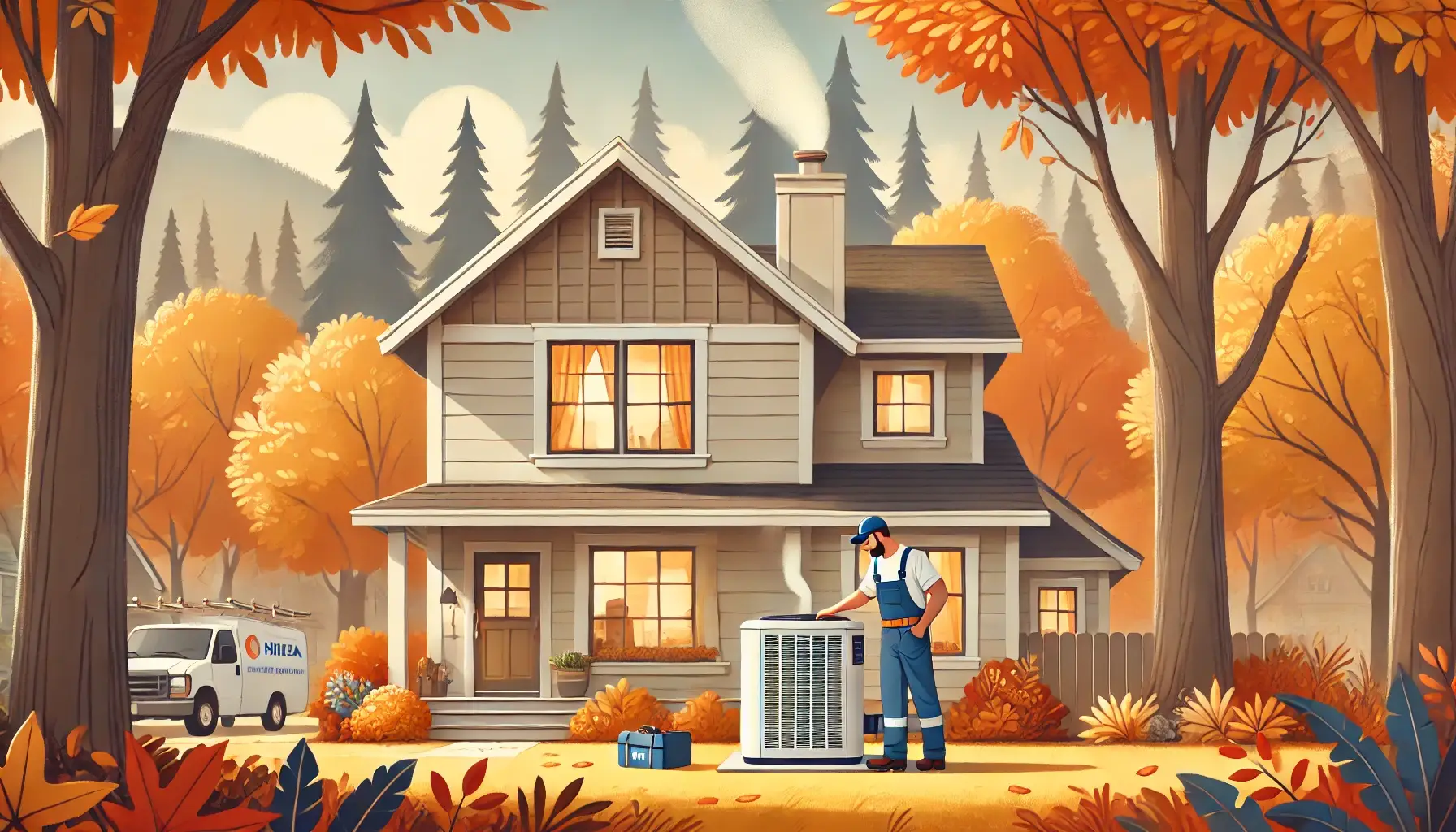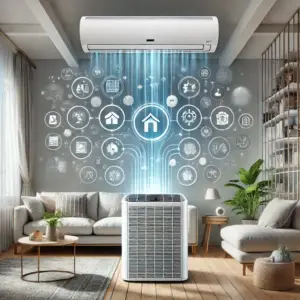As fall arrives in Seattle, the temperatures begin to cool, and the days get shorter. Homeowners start to rely more on their heating systems to maintain comfort during the brisk Pacific Northwest evenings. Before the cold really sets in, it’s crucial to ensure your HVAC system is prepared for the fall and winter seasons ahead. Preventative HVAC maintenance can help avoid unexpected breakdowns, improve energy efficiency, and prolong the life of your system.
In this guide, we’ll cover essential HVAC maintenance tips for the fall, answer some common questions from homeowners, and explain why proper maintenance is critical to keeping your home comfortable as temperatures drop.
Why Is Fall HVAC Maintenance Important?
Regular HVAC maintenance is essential for several reasons, especially as we head into the colder months. The fall season is the perfect time to schedule a tune-up and inspection because it allows you to catch any issues before they become bigger (and more expensive) problems during the winter. Here’s why fall HVAC maintenance is so important:
- Prevent System Failures: After working hard all summer, your HVAC system may have some wear and tear. Without regular check-ups, minor issues can develop into major malfunctions, which may lead to a costly breakdown in the middle of winter.
- Improve Energy Efficiency: A well-maintained HVAC system operates more efficiently. This means lower energy bills, something every Seattle homeowner appreciates as we head into the season of increased energy use.
- Extend the Lifespan of Your System: Just like any other piece of equipment, regular maintenance extends the life of your HVAC system. Neglecting your system for long periods can lead to premature failure, which may force you to invest in a costly replacement.
- Maintain Air Quality: As you close your windows to keep out the chill, you’ll be relying on your HVAC system to filter and circulate the air in your home. Regular maintenance, such as changing filters and cleaning ducts, helps keep your indoor air fresh and free of allergens or dust.
What is Included in Fall HVAC Maintenance?
When you schedule a fall HVAC maintenance visit with a professional technician, they’ll complete a thorough inspection of your system to ensure it’s ready for the colder months. Here’s what typically happens during a fall HVAC maintenance check:
- Inspect and Replace Filters: One of the simplest and most important maintenance tasks is changing your HVAC filters. Clogged or dirty filters can reduce airflow, making your system work harder and lowering efficiency. Seattle’s air can contain allergens and moisture, so replacing filters regularly is especially important.
- Check Thermostat Settings: Your technician will ensure your thermostat is calibrated correctly and working properly. You may also want to consider upgrading to a programmable or smart thermostat to save energy during the cooler months.
- Examine Ductwork and Vents: Fall is a great time to make sure your ductwork is free of dust and debris. Leaky or dirty ducts can reduce airflow, causing your system to run inefficiently.
- Inspect the Furnace: Your furnace will be inspected for any signs of wear, damage, or potential failure. The technician will check the burners, heat exchanger, and safety controls to ensure everything is working properly.
- Check for Carbon Monoxide Leaks: During fall maintenance, it’s important to check for any carbon monoxide leaks, especially in older systems. This colorless, odorless gas is extremely dangerous, so a thorough inspection is vital to ensure your family’s safety.
How Often Should HVAC Be Serviced?
A question we often hear from Seattle homeowners is: How often should HVAC be serviced? The best practice is to service your HVAC system twice a year – once in the fall and once in the spring. This ensures that both the heating and cooling components of your system are functioning at their best when you need them most.
Spring maintenance focuses on preparing your air conditioner for summer, while fall maintenance is all about getting your heating system ready for the colder months. Regular check-ups not only improve your system’s efficiency but also extend its lifespan, potentially saving you thousands of dollars in repairs or replacements.
What Happens If You Don’t Service Your HVAC?
Neglecting your HVAC system can have several consequences, some of which can be expensive or even dangerous. If you don’t service your HVAC system, here’s what might happen:
- Reduced Efficiency: Without proper maintenance, dust and debris can build up in your system, causing it to work harder than necessary. This means higher energy bills and less comfort in your home.
- Higher Repair Costs: Small issues that are easily fixed during a routine check-up can develop into much larger, more expensive problems if left unchecked. A regular maintenance visit is far cheaper than an emergency repair in the dead of winter.
- Premature System Failure: Regular maintenance extends the life of your HVAC system, but neglect can shorten it. Without proper care, parts wear out faster, and you could face an expensive replacement sooner than expected.
- Safety Hazards: Failing to inspect your HVAC system can also lead to safety issues, such as gas or carbon monoxide leaks, which can be life-threatening.
How Do I Prepare My Furnace for the Winter?
As fall approaches, preparing your furnace for the cold months ahead is essential. Here’s how to ensure your furnace is ready:
- Change the Filter: Start by changing the furnace filter to ensure proper airflow. A clogged filter makes your furnace work harder, increasing wear and tear.
- Schedule a Professional Tune-Up: A professional HVAC technician will inspect your furnace, clean components, check for potential issues, and ensure everything is running smoothly.
- Test the Thermostat: Make sure your thermostat is working properly and set to your desired temperature. If you haven’t already, consider upgrading to a programmable thermostat for better energy efficiency.
- Check Vents and Registers: Ensure that all vents and registers are clear of obstructions, such as furniture or drapes, to allow for proper airflow.
- Inspect the Area Around the Furnace: Keep the area around your furnace free of clutter to prevent any fire hazards and allow for adequate ventilation.
How Can I Improve HVAC Efficiency?
Improving the efficiency of your HVAC system not only lowers your energy bills but also reduces wear and tear on the system itself. Here are some tips to keep your HVAC system running efficiently during the fall and winter:
- Upgrade Your Thermostat: Smart thermostats can significantly improve your system’s efficiency by learning your schedule and adjusting the temperature automatically.
- Seal Air Leaks: Check for drafts around doors, windows, and ductwork. Sealing these leaks helps your HVAC system maintain a consistent temperature more easily.
- Regular Filter Changes: As mentioned earlier, replacing filters regularly ensures proper airflow, making your system more efficient.
- Proper Insulation: Make sure your home is well-insulated to keep warm air inside. This will reduce the amount of work your HVAC system needs to do.
Conclusion
Fall HVAC maintenance is an essential step for Seattle homeowners to ensure their heating systems are ready for the colder months. By scheduling regular maintenance, inspecting key components, and staying proactive with filter changes and thermostat upgrades, you’ll keep your home comfortable, save on energy costs, and extend the life of your HVAC system.
If you haven’t scheduled your fall HVAC maintenance yet, now is the perfect time to do so. Contact our team of HVAC experts in Seattle to make sure your system is prepared for the season ahead!


